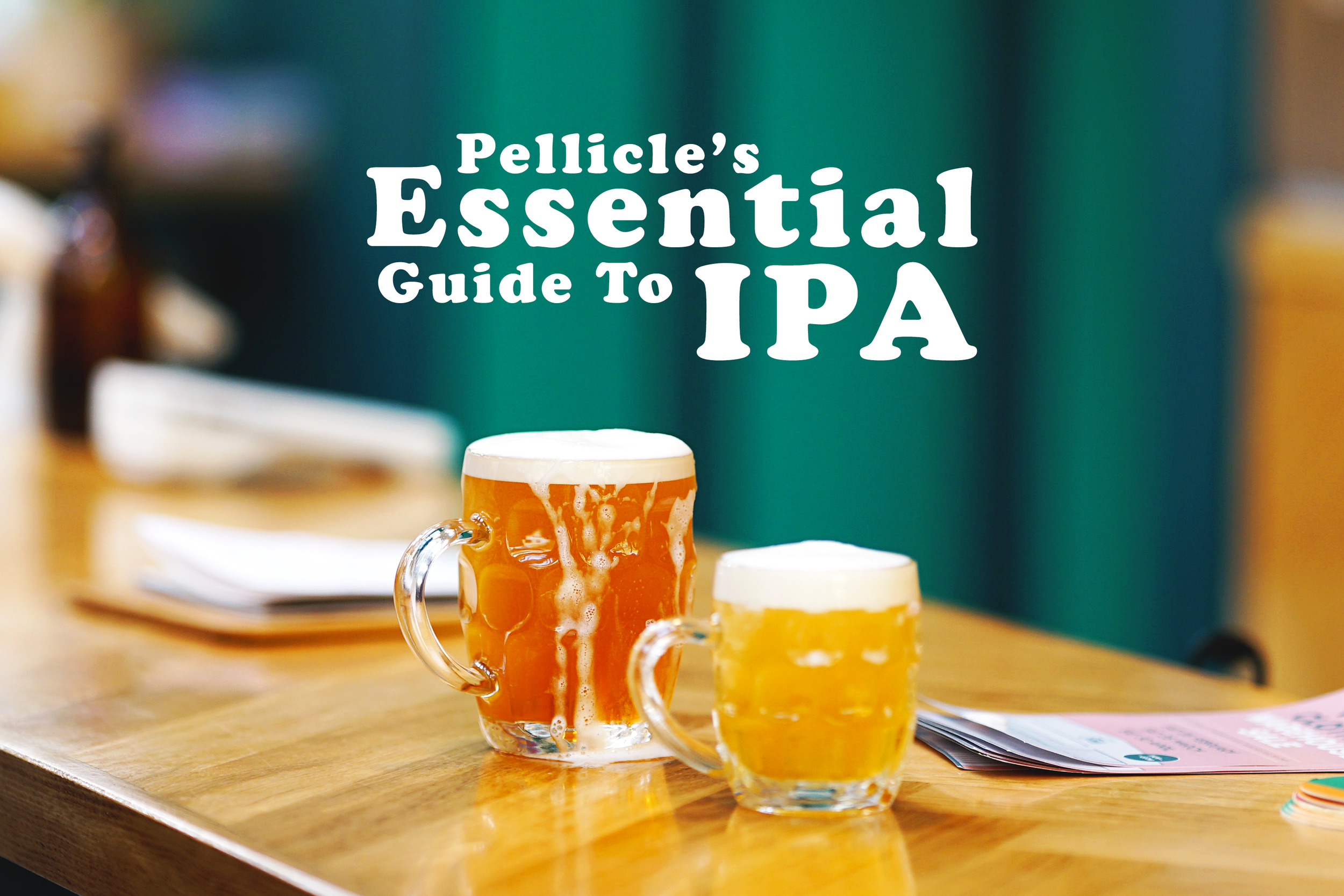In Dream and Vision — The Southampton Arms in Kentish Town, London
Are you poets’ corner or cockney corner?
This is the only real quandary you face when you visit the Southampton Arms—where to sit and who to sit among. The welcome is warm, inviting, and inclusive. The beer itself meets the most agreed-upon definition of ‘craft’—entirely independent, hand-picked, and varied in style, but not quality. The surroundings are uniquely comfortable for a busy London pub—a rare mix of classic hardwood floors and wood panelling, with a communal seating arrangement that fosters conversation between old and young, rich and poor.
Photography by Lily Waite
This is an exemplary community pub. But, unlike many local pubs that have a customer-base from the surrounding area, it’s one whose community is drawn from the whole of London and beyond—such is the quality to its offering. From its real ales and ciders, award-winning pork pies, and hot roast pork buns (that are to die for), to its overall, intangible ‘vibe’, there’s something at The Southampton Arms for everyone.
When I visit, I can usually be found in poetry corner, outside by the beer garden’s entrance, where the punters are often rather bohemian for a very moneyed part of North London. You’ll find set designers, actors, and DJs here.
But with my background, if I’m being honest, I should frequent cockney corner. This area is nearer the main entrance and is home to the pub’s more geographically-diverse and working class drinkers. You’re just as likely to strike up a conversation with a Geordie than you are someone born within the sound of the bow bells. Here I can talk all things Arsenal under the gaze of the matchday programmes, placed there by punters as part of their post-game ritual.
All things considered, this Parliament Hill-slash-Kentish Town boozer is a god-tier London pub. And it owes its success to its locals of both corners, the regulars who love to gaze at its stunning wooden bar, and its landlord Nick Bailey, who sees himself more as a “custodian” with a “steady hand on the tiller.”
***
The Southampton Arms was bought in 2009 by Pete Holt, founder of Hackney Wick’s Howling Hops Brewery. While the rest of the capital’s pubs seemed more keg-based and food-orientated, the Southampton Arms took a different approach, embracing cask beer, real cider, and conversation—there’s never anyone on a laptop here, and you’ll be politely rebuffed if you ask for the Wi-Fi password.
“The pub [before] was quite dangerous,” Nick says. “There wasn’t this Victorian style. It was dark. But one of the remarkable things is that some of the people who drank there stayed.”
That’s quite something. In its previous life the pub was big on sports, and served only resolutely ‘uncraft’ beers like Carlsberg and Guinness, so to retain locals is a huge achievement, given the drastic shift in the pub’s offering.
On the Friday afternoon of my visit, the nine cask lines include: Burning Sky’s collaboration with Verdant Brewing Rumour Mill, kept in such fine condition, it ended any argument I might’ve heard for the use of sparklers; Titanic’s characterful Plum Porter, complete with just enough stone fruit notes to not overpower the delicate Goldings hops; and Hobson’s The Champion, which was possibly the best dark mild I’ve tried yet, with each sip offering a unique balance of nuttyness, cocoa, and bitter coffee notes. Whenever I taste this beer I’m amazed that its flavour profile is balanced by a highly sessionable 3.2% ABV.
I can see why these enduring locals stayed—and that’s why the Southampton Arms works; its lineup of beer might be thoughtfully curated but in doing so Nick embraces all different types of drinkers—even away football fans, rarely found in pubs far from the stadium.
That’s not to say Nick relents easily when it comes to beer that doesn’t meet his criteria. Any brewery that ceases to be wholly independent (this includes receiving private equity funding) is blacklisted from the pub by Nick. Sometimes this is to the disappointment of locals—as was the case with Magic Rock Brewing upon their sale to Australian beer giant Lion in 2019.
He’s never short of more-than-adequate replacements, however, and being the only pub in London—according to Nick, at least—that only stocks independently produced beer is something to be applauded, especially as more and more consolidation within the trade occurs.
***
Nick isn’t your average landlord. I’ve meet lots of publicans and never met one with a law degree (people who study law tend to be lawyers!) and when I tell him about my swim at nearby Parliament Hill Lido before we meet he empathises with how I often feel uncomfortable being the only swimmer of colour. I’m brown, he’s black.
We exchange anecdotes of racist microaggressions in the countryside, which feels a world away despite the pub sitting on the outer edges of Hampstead Heath. It dawns on me that I could tolerate this prejudice outside of the city—I love nature—but it’s safe spaces like the Southampton Arms that keep me most happy. This is where I’m truly at home.
““You realise how we all live in silos but if you get people to try something new you can change them.””
“I love the job,” Nick tells me. “I don’t feel like I’m working because I live [above the pub]. It’s a lot of hours but I don’t feel that way. I do photography because I like photos. I write copy because I like and admire people who write well. All these things were not part of the job description but I use all these things I have interests in as part of the job.”
“Some jobs are what you make them,” he continues. “I’ve always loved gardening, I’ve always loved records. I’ve always loved literature. It was never in my job description to do the garden—but I like gardening.”
The harmonious Jazz records crackling just above the hubbub of lively conversation, the beauty of a well tended beer garden with flourishing fuchsias drooping lazily in the sun, the dusty scrawl hand-painted across the pub’s chalkboards. They all have Nick’s touch; they all have his signature.
***
“The beer is an opener to talk,” says Alex Dangerfield, a regular who has been coming since 2012. “I sat here on my first visit and the conversation just flowed. And that’s when I realised it’s almost as if this garden is on a ley line. This garden has a magical quality where people want to talk. There are gangsters, bankers, lawyers, musicians, stuntmen—everyone. And everyone joins in.”
I’m in poets’ corner and those around me are discussing beer, and how it can inspire people to talk despite their class, race or political beliefs, such as Brexit or immigration. The ability to break down these kind of barriers is what craft beer at large intended but never really achieved. Apart from here.
I’ve worked in a lot of ‘locals’ pubs and the regulars here would have been a dream to serve: they’re friendly and knowledgeable but, above all, they’re a little bit glamorous.
“People come from all over the world,” Alex says. “And you’re guaranteed to learn something. But if we hear any remarks, like homophobic or sexist ones, we put a stop to it.”
“This is the best pub,” Andy Blake, a DJ and rave promoter I meet in poets’ corner, says. “I’m usually one of the vaguely furtive-looking guys circling the place at 11.55am. I was a cider drinker but I fell in love with [Thornbridge Brewery’s] Jaipur here.”
Andy was very grateful of the community the pub provides, something he found particularly consolatory during lockdown when he and other regulars would buy beer in flagons to take away. Instead of sitting in poets’ corner, as they might otherwise, they moved their small community to a dusty corner opposite the pub and played Petanque all summer.
“Every time I come here,” Alex adds. “I have a great conversation and learn from interesting people. All the staff are wonderful and what Nick did in lockdown was bring the place up [by tending to the garden] and make it even more special.”
***
The bond Nick holds with his customers is rather special, and very touching. When I asked him who would be the best local to speak to, the list he gave was long, but reminded him of a regular called Pat whose death deeply moved him.
“He was an integral part of cockney corner,” he says. “He passed away last year of cancer. He was an amazing working class man. He would be sat there reading for about an hour before his friends came in. He had so many stories.”
It’s this connection with his customers, past and present, which to my mind earns Nick the title of custodian; he admits he’s lucky to not be “beholden to a remote owner” who makes abstract decisions, without knowing their impact.
In fact, the trust Pete at Howling Hops has given Nick, means he has free reign with bold, experimental beer choices—he’s very keen to give me a taste of Vault City Blackberry Blueberry Blackcurrant Choc Chip Cookie Dough (“I rate it so much,” he says) and reveals that sour beers are so popular a keg can be finished within hours on a busy Saturday.
“What I love about this pub,” Nick says. “Is the variety. You realise how we all live in silos but if you get people to try something new you can change them. It’s about pushing boundaries.”
There’s a certain irony here: the pub I consider my safe space, where I can heal the experience of being the only swimmer of colour, is a room that also constantly challenges me. The Southampton Arms makes us question our presumptions and tastes, and why you should never make assumptions about people—whether they be cockneys or poets.





































